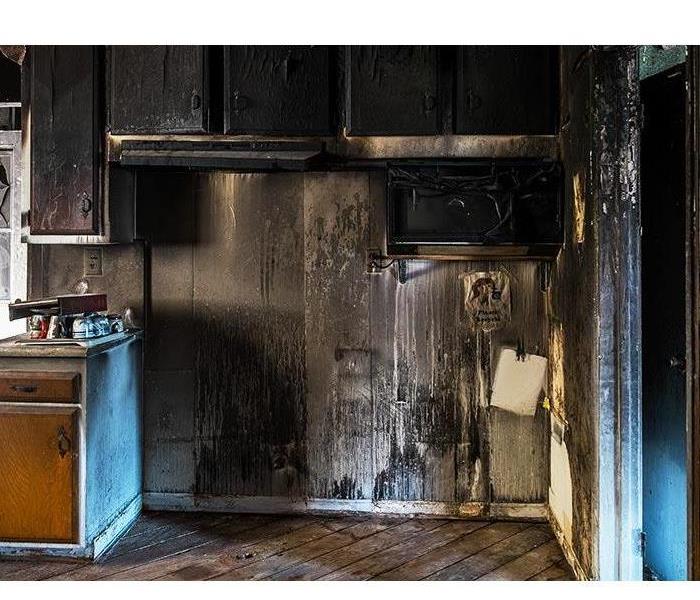What You Need to Know About Smoke Damage
8/23/2021 (Permalink)
Fires can destroy your property and cause irreversible damage. The flames move from item to item burning everything to a crisp char. The heat produced by the flames will radiate and cause surrounding items to melt, crack and even shatter. After the flames have been put out, you are then left with smoke damage. Smoke damage left unaddressed can devastate your home and its contents, and the actual fire does not necessarily have to occur in the same room.
In wildfires, homes and businesses have been completely ruined just from smoke while the buildings remained untouched by flames.
Not all smoke damage is the same. Each of these is caused by different circumstances. The temperature of the fire, fueling materials, and location will all play a role. Depending on what type of damage was done will slightly affect the restoration of the impacted area. Exactly what are the types of smoke damage?
There are four different types of smoke damage:
Protein residue: This type is prevalent in low-temperature kitchen fires. There is minimal smoke, soot, and streaking, but it may permanently discolor any finished surfaces. While hard to see, it’s not hard to smell: if left untreated, the intense, unpleasant odor may permeate the entire home or business.
Dry smoke is produced by fires fueled by paper or wood that burn at high temperatures and spread quickly. A light powdery substance is left on surfaces; thankfully, this is easy to clean compared with denser smoke and thick soot. Dry smoke is light and will easily get into porous surfaces. Even though it might look clean, a smoky smell persists.
Wet smoke: Caused by low heat, smoldering fires that have plastic and/or rubber actively burning. These fires have a distinct smell, and despite the smaller flames, the smoke is extremely thick and full of black soot. This sticky and dense smoke has no trouble fully covering the surfaces throughout homes and businesses. Special equipment is often needed to clean this smoke damage correctly.
Fuel/Oil Also known as petroleum residues, this smoke damage is not very common within homes and businesses because most of us don’t have a ton of gasoline just chilling in our house. The residue from this smoke is sticky, thick, and especially difficult to clean. With a hefty and non-appealing smell, it is easy to notice and will easily destroy upholstered furniture, clothing, curtains, and other materials unless promptly washed and cleaned.
In any situation, avoid touching any of the residues to prevent smearing, and let a certified professional service, like SERVPRO of Grand Junction, clean it up to ensure your safety and your home’s.
If you have any smoke damage that you need to be cleaned, call SERVPRO of Grand Junction for Fire Damage Restoration and Repairs, we can help. Call us today at 970-949-3235. We are a 24/7 emergency response.






 24/7 Emergency Service
24/7 Emergency Service
